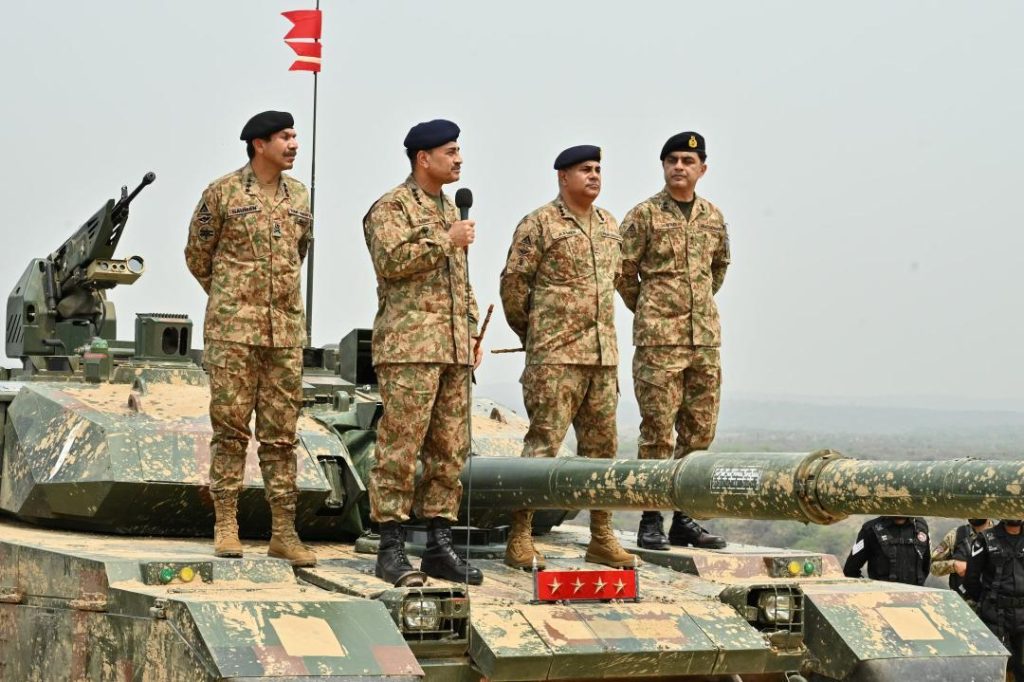
Asim Munir is Osama Bin Laden in a Suit: Former US Official
The recent appointment of Asim Munir as the Chief of Army Staff (COAS) of Pakistan has sparked a heated debate in the international community. While some have hailed his selection as a positive move, others have expressed concerns about his leadership style and the potential implications for regional security. In a shocking statement, a former Pentagon official has likened Munir to Osama Bin Laden, stating that he is “Osama bin Laden in a suit”.
Michael Rubin, a former Pentagon official and a scholar at the American Enterprise Institute, made this scathing remark during an interview. Rubin’s comments have sent shockwaves across the globe, with many wondering what prompted him to make such a bold and incendiary statement.
According to Rubin, Munir’s appointment as COAS is a cause for concern because of his background and the potential risks he poses to regional security. “Asim Munir is Osama bin Laden in a suit,” Rubin said. “He’s a terrorist in a uniform.”
Rubin’s comments are not without merit. Asim Munir has a history of making controversial statements, including a recent threat he made against the United States. During a speech, Munir warned that Pakistan could take half the world down with it if it were to be attacked by the US.
This statement has raised eyebrows around the world, with many expressing concern about the potential implications of Munir’s words. The US and Pakistan have a complicated history, and any statements that suggest Pakistan is willing to engage in nuclear war are deeply troubling.
Rubin also made another interesting comment during his interview. He compared US President Donald Trump to a businessman who is used to horse-trading. According to Rubin, Trump “doesn’t understand that a bad peace deal can advance war”. This statement is particularly noteworthy given the current state of US-Pakistan relations.
The US and Pakistan have been at odds over a range of issues, including Pakistan’s support for terrorist groups and the country’s nuclear program. The US has imposed sanctions on several Pakistani officials, including Munir, due to concerns about their involvement in terrorist activities.
In response to Rubin’s comments, the Pakistan military has issued a statement denying any involvement in terrorism. The statement claimed that the Pakistani military is committed to fighting terrorism and promoting regional stability.
However, Rubin’s comments have sparked a wider debate about the nature of the Pakistani military and its role in regional security. Some have argued that the Pakistani military has a history of supporting terrorist groups and engaging in destabilizing activities.
The Pakistani military has been accused of supporting groups such as the Taliban and the Haqqani network, which are responsible for numerous terrorist attacks in the region. The military has also been accused of engaging in covert operations against its neighbors, including India and Afghanistan.
In light of these concerns, Rubin’s comments about Munir being “Osama bin Laden in a suit” are particularly noteworthy. They suggest that Rubin believes Munir is a terrorist in disguise, and that his appointment as COAS is a cause for concern.
While Rubin’s comments are certainly provocative, they do raise important questions about the nature of the Pakistani military and its role in regional security. As the international community continues to grapple with the implications of Munir’s appointment, it is essential that we take a closer look at the Pakistani military’s history and its involvement in regional conflicts.
Ultimately, Rubin’s comments highlight the need for greater transparency and accountability in the Pakistani military. The international community has a right to know more about the military’s activities and its role in promoting regional stability.
As the world continues to watch the developments in Pakistan, it is essential that we remain vigilant and continue to raise questions about the country’s military and its leadership. The appointment of Asim Munir as COAS is a significant development, and it is crucial that we take a closer look at the potential implications for regional security.



